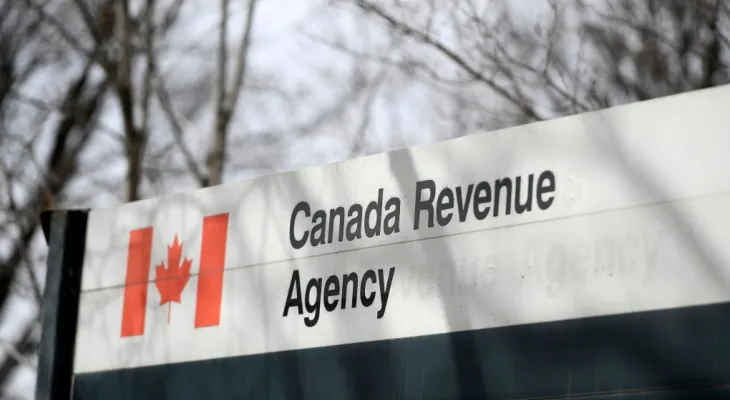Search here
Newspaper
Search here

Arab Canada News
News

Published: May 1, 2024
A survey conducted by H&R Block Canada last week indicated that there are still seven million Canadians who have not filed their taxes with the Canada Revenue Agency.
Many are expected to rush to complete them by midnight tonight, although some admit to procrastination because they fear they owe money.
According to the Revenue Agency, it is estimated that about ten percent of Canadians never file a tax return also because they are worried that they owe money, there may be a language barrier, or they are not aware that it is something they need to do.
But if you don't, you could lose government benefits.
Jerry Vitortus, a tax expert at Ufile, said: "In order to receive benefits, for example, the child benefit or goods and services tax credit, you need to file your tax return so that the government can accurately determine the credits and benefits you are entitled to."
The Canada Revenue Agency (CRA) has expedited the process of assessing returns, and Vitortus added that many Canadians who have already filed their taxes have received their refunds.
He continued, "If your tax return isn't too complicated, there is an automated system and you can process your return and have the refund in your account within five business days."
There are some changes to the tax system when you file your return this year.
About 500,000 Canadians opened their first home savings account (FHSA) last year in hopes of saving a down payment for their first home, including Greg Rondo from Geraldton, Ontario, near Thunder Bay.
Rondo said, "It's definitely better than what we had before, and I think more in this case is better."
He added that he maxed out his FHSA last year with $8,000 and hopes to invest another $8,000 this year, which will also help him get a larger tax refund.
Rondo said, "I'm happy I started investing and paying myself first; I'm now seeing returns with my investments and it's quite enjoyable."
Contributions to an FHSA can be made up to $8,000 annually up to a maximum of $40,000, tax-free, and income earned within the registered plan from qualified investments will not be taxed.
John Oaki, vice president of taxes at Professional Accountants of Canada, said, "This is a new financial incentive for first-time homeowners."
There is also a multi-generational home renovation tax credit. It's a refundable tax credit of up to $7,500 (15 percent of $50,000) introduced for Canadians renovating their homes to accommodate a qualifying individual,
This new credit will allow taxpayers to deduct 15 percent of qualifying expenses on eligible renovations incurred on or after January 1, 2023, up to a maximum of $50,000 for each qualifying renovation completed in the year.
Another major change is the full tax on residential property sold within 365 days of purchase. According to CPA profits from the sale of residential properties, including rental properties or personal use properties, that have been owned for less than 365 consecutive days will be taxed fully as business income.
They will not be treated as capital gains, as part of the new "anti-flipping" rules. Exceptions may apply, such as sales related to death or transfer.
There is also a doubling of the expense deduction for tradespeople. The deduction has doubled from $500 to $1,000 in 2023 on taxes. Employees can now deduct up to $1,000 annually for qualifying trade tools required for employment.
Mortgage rates have risen, and the CRA has also increased its rates when it comes to penalties if you owe government money.
Oaki said, "I believe the interest rates for CRA in the last quarter were 10 percent, so if you want to manage your tax situation well, you want to make sure to pay your tax installments and the taxes you owe on time."
The tax program can guide you through filling out your return, and there are many free programs you can use that are approved by the government. You can find a list of them on the CRA website.
Comments